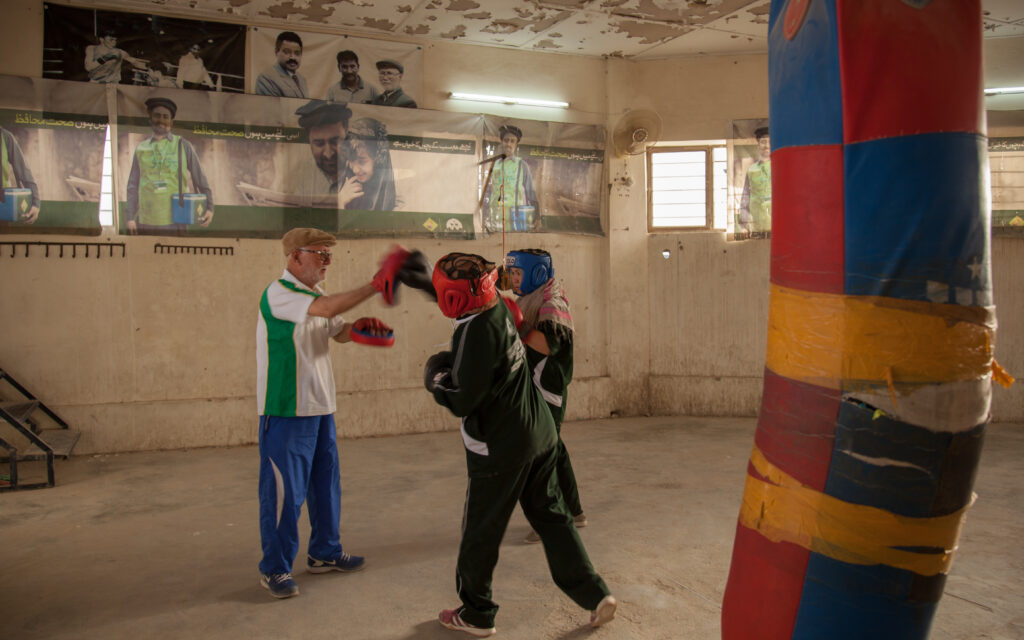
Under the dilapidated ceiling of the Taji Khan Hazara Sports Complex—its white paint now grey and peeling—72-year-old Habibullah Jaferi practised punches with a young student. A spot of sunlight lit the cold, concrete ground. The two danced around it. As his narrowed eyes followed her movements from behind a pair of thick-rimmed glasses, she positioned her gloves close to her face, swung a left, then a hurried right. He parried the blows, before shifting his focus to the next student.
For six days a week, Habibullah holds free coaching classes at this club on Quetta’s Alamdar Road—one of four boxing clubs in the neighbourhood. A washed-out poster of the “father of boxing,” as he is known here, standing next to his star student, Syed Asif Shah Hazara, was plastered on the wall. Through the windows, the towering, barren mountains that surround the city were visible. Habibullah would practise along the foothills as a teenager in the 1960s. He would run in the open field, throwing his bare fists against the wind.
“Has Habibullah lost his mind?” alarmed bystanders would ask his younger brother, Hasratullah Changezi.
“Boxing was an unknown sport in Balochistan,” Hasratullah said. But whenever the state-run channel PTV would telecast the fights of Muhammad Ali, the boys of Alamdar Road would huddle around black-and-white televisions to watch. Then, in the 1980s, they began renting video cassettes of the matches of boxing legends.
“We never missed a fight,” Habibullah remembered.
This article was published in The Caravan’s September 2019 issue. Read more here.